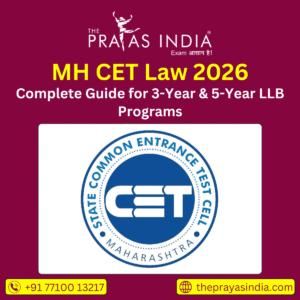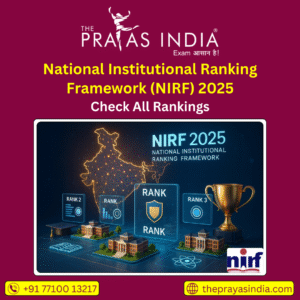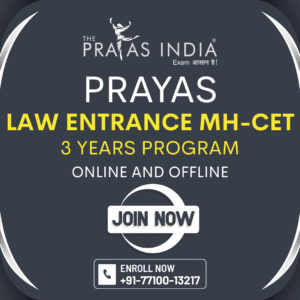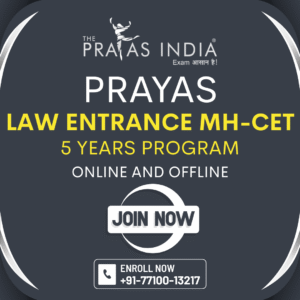Parliamentary Privileges in India: Constitutional Basis, Evolution, and Reform Needs
-
GS Paper 2: Parliament, Separation of Powers, Accountability, Governance
-
Prelims: Articles 105 & 194, Related Cases and Committees
-
Mains: Essays on Parliamentary Sovereignty, Judicial Review, or Transparency in Governance
Introduction
Parliamentary privileges are special rights, immunities, and exemptions enjoyed by Parliament and its members to ensure independence and efficiency in legislative functioning. These privileges protect members from external interference and enable them to express views freely, question executive actions, and perform their legislative duties without fear.
The concept has its roots in the British parliamentary tradition, where after centuries of struggle between the Crown and Parliament, legislators secured immunities essential for the autonomy of the legislature. India, following the Westminster model, adopted a similar framework in its Constitution to safeguard democratic deliberation and accountability.
In a democracy, while Parliament represents the people’s sovereignty, it functions within the bounds of the Constitution. Hence, the exercise of privileges must align with constitutional supremacy and individual rights.
Constitutional Basis in India
The foundation of parliamentary privileges in India lies in Articles 105 and 194 of the Constitution.
- Article 105 deals with the powers, privileges, and immunities of Parliament and its members.
- Article 194 extends similar provisions to state legislatures and their members.
Under Article 105(1), there is freedom of speech in Parliament, distinct from the fundamental right to freedom of speech guaranteed by Article 19(1)(a). While Article 19(1)(a) is subject to reasonable restrictions, freedom of speech in Parliament is absolute within the House, subject only to the rules of procedure and the authority of the presiding officer.
Privileges can be divided into collective privileges (enjoyed by the House as a whole) and individual privileges (enjoyed by members individually). The purpose is not to grant personal benefit but to secure parliamentary independence.
Additionally, as per Article 105(3), privileges of each House shall be those of the House of Commons of the British Parliament until defined by Parliament by law. However, even after 75 years, India has not codified these privileges, leaving scope for ambiguity and conflict.
Types of Parliamentary Privileges
A. Collective Privileges of Parliament or State Legislature
-
Freedom of Speech in the House
Members enjoy complete freedom to speak or debate on any matter within the House without fear of legal consequences. Their statements cannot be questioned in any court of law. -
Right to Publish Debates and Proceedings
The House has the right to publish its debates and prohibit unauthorized publications if necessary in the public interest. However, under modern transparency norms, parliamentary debates are now publicly accessible. -
Right to Regulate Internal Proceedings
Each House determines its own rules of procedure and has exclusive control over the conduct of its members and business. -
Immunity from Judicial Scrutiny Over Internal Matters
Courts cannot inquire into proceedings within the House respecting alleged irregularity of procedure, preserving the House’s autonomy. -
Right to Punish for Breach of Privilege or Contempt
The House possesses the power to punish individuals, including members or outsiders, found guilty of obstructing legislative functioning or showing contempt toward the House.
B. Individual Privileges of Members
-
Freedom from Arrest in Civil Cases During Sessions
Members cannot be arrested in civil cases during parliamentary sessions or 40 days before and after, ensuring their attendance in the House. This does not extend to criminal or preventive detention cases. -
Immunity for Speech or Vote in the House
Members enjoy immunity from court proceedings for any statement made or vote given in the House or its committees. -
Exemption from Jury or Witness Duty
Members are exempted from appearing in court as witnesses while the House is in session, so as not to hinder legislative proceedings.
Privilege Motion
A privilege motion is raised when any member feels that the rights, immunities, or privileges of a House or its members have been breached.
Procedure:
A member may, with the consent of the Speaker (Lok Sabha) or Chairman (Rajya Sabha), raise such a motion. It must relate to a specific recent breach involving the dignity or authority of the House.
The Speaker or Chairman may refer the motion to the Committee of Privileges for detailed examination. After investigation, the committee submits a report recommending action, which the House may accept through a resolution.
Purpose:
The motion ensures accountability within legislative conduct and defends Parliament’s authority against external or internal interference.
Important Cases and Judicial Interpretations
-
Pandit M.S.M. Sharma vs Sri Krishna Sinha (1959) – Searchlight Case
The Supreme Court upheld the legislature’s privilege to punish for contempt and the power to prohibit publication of its proceedings. It ruled that such privileges override the fundamental right under Article 19(1)(a), establishing legislative supremacy in internal matters. -
Keshav Singh Case (1965)
This landmark case arose when the Uttar Pradesh Legislative Assembly punished an individual and two High Court judges for contempt. The Supreme Court intervened, stating that legislative privileges are subject to judicial review when actions exceed constitutional limits. This case clarified the balance between judiciary and legislature. -
Raja Ram Pal vs Speaker, Lok Sabha (2007)
The Court reaffirmed that parliamentary privileges are part of the Constitution but not beyond judicial scrutiny. In cases of unconstitutional or mala fide actions, courts can intervene. This case involved the expulsion of MPs in the “cash-for-query” scam. -
Subramanian Swamy vs Arun Shourie (2016)
The Court observed that parliamentary privileges cannot be claimed as a defense in personal defamation suits unless the statements are made strictly as part of legislative proceedings.
These judgments collectively underline that while privileges are essential for independence, they must not transgress constitutional supremacy or fundamental rights.
Privileges vs Fundamental Rights
The tension between parliamentary privileges and fundamental rights arises primarily in the context of freedom of speech (Article 19) and personal liberty (Article 21).
While legislators enjoy freedom inside the House, citizens and journalists have constitutional protections outside it. Problems occur when legislatures use privileges to penalize journalists, critics, or others under contempt powers.
The Supreme Court has consistently emphasized that privileges cannot override the basic structure of the Constitution. Judicial review acts as a safeguard to prevent arbitrary use. Thus, privileges must coexist with rights in harmony under constitutional supremacy.
Controversies and Issues
-
Misuse for Political Vendetta –
Privilege motions are sometimes used to harass political opponents, civil servants, or journalists, rather than to protect House dignity. -
Ambiguity Due to Lack of Codification –
Absence of a statutory definition allows discretionary and inconsistent application, leading to conflicts with courts or media. -
Privilege vs Media Freedom –
Actions against journalists for reporting legislative debates have raised questions of press freedom and transparency. -
Executive Dominance and Weak Oversight –
Increasing governmental control within legislatures undermines the genuine use of privileges as tools of accountability. -
Public Perception and Democratic Accountability –
Excessive assertion of privileges without justification erodes citizens’ confidence in the legislature’s integrity.
Debate on Codification of Privileges
Arguments For Codification
- Provides clarity, consistency, and transparency in legislative privileges.
- Prevents misuse and political manipulation.
- Ensures citizens’ rights are protected from arbitrary parliamentary actions.
- Aligns with global democratic practices where privileges are legislatively defined.
Arguments Against Codification
- Flexibility needed for legislative autonomy and evolution over time.
- Rigid laws may limit inherent powers essential for maintaining discipline within the House.
- British parliamentary conventions allow privileges to evolve with changing circumstances, offering adaptive strength.
Punchhi Commission (2010) and National Commission to Review the Working of the Constitution (NCRWC) recommended that the scope and extent of parliamentary privileges should be defined by law to promote transparency and avoid misuse.
Way Forward and Reforms
-
Codify Privileges within Constitutional Boundaries
Define privileges through legislation without undermining legislative freedom, ensuring a balance with fundamental rights. -
Judicial Oversight and Guidelines
Supreme Court guidelines can delineate the boundary between legitimate legislative autonomy and unconstitutional excess. -
Transparent Privilege Committees
Make committee proceedings more structured and open, ensuring fairness and proportional action. -
Strengthen Ethics Committees
Empower parliamentary ethics committees to address member misconduct through objective frameworks. -
Media and Citizens’ Protection
Safeguard journalistic reporting of parliamentary proceedings as part of public interest communication. -
Capacity Building and Awareness
Regular orientation for members on privilege boundaries and constitutional obligations.
A balanced approach emphasizing both institutional dignity and constitutional accountability ensures privileges serve democratic ends rather than political ends.
Conclusion
Parliamentary privileges in India are indispensable for the legislature’s independent and effective functioning. However, their exercise must remain within the spirit of constitutional democracy. Privileges are not personal entitlements but protective instruments aimed at sustaining legislative supremacy within constitutional limits.
Unchecked use or misuse can threaten the very accountability they were meant to secure. Reform through codification, transparency, and judicial guidance will help evolve a mature equilibrium—where legislative autonomy, public freedom, and constitutional supremacy coexist harmoniously.
FAQs on Parliamentary Privileges
Q1. Which Constitutional Articles deal with parliamentary privileges in India?
Articles 105 (for Parliament) and 194 (for State Legislatures) deal with privileges, powers, and immunities.
Q2. Are parliamentary privileges codified in India?
No, India continues to follow uncodified conventions, similar to British practice, leading to ambiguity and discretionary interpretation.
Q3. Can courts review legislative privilege actions?
Yes, as per Raja Ram Pal vs Speaker (2007), judicial review is permitted when legislatures act unconstitutionally or arbitrarily.
Q4. What is the difference between collective and individual privileges?
Collective privileges belong to the House (like regulating proceedings), while individual privileges protect members personally (like freedom from arrest in civil cases).
Q5. Why is codification of privileges debated?
Supporters argue it ensures clarity and accountability; opponents fear it may restrict necessary flexibility and autonomy.








